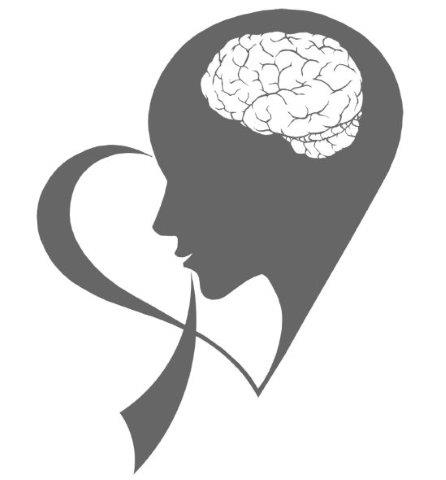Pancreatic Cancer in the News
April 24th, 2024 Pancreatic cancer has been making headlines. Read on to see what researchers have to say about this disease.
Pancreatic cancer has been making headlines. Read on to see what researchers have to say about this disease.
Vaccine for Pancreatic Cancer
A pancreatic cancer vaccine has continued to protect a small group of patients from having their cancer come back three years after receiving the shot, a new study says.
Eight patients have not had their pancreatic cancer recur for three years after their immune systems responded to the vaccine, researchers reported.
Even after successful surgery, only about 12 percent of patients are alive five years after diagnosis, according to the American Association of Clinical Oncology.
The mRNA-based vaccine teaches the immune system to identify and attack cancer cells, using 20 unique proteins exclusively present in a patient’s tumor. The vaccine is specially made for each patient, based on the specific mutations found in their cancer.
The research team compared eight patients who responded to the vaccine with eight patients who did not. All had undergone surgery to remove their cancer.
Those who did not respond to the vaccine had an average recurrence-free survival rate of 13 months, results show. But those whose immune systems did learn from the vaccine have remained cancer free for three years, researchers said.
Blood Test for Pancreatic Cancer
A blood test appears capable of detecting early-stage pancreatic cancers with up to 97 percent accuracy, a new study reports.
The test looks for eight small RNA particles and eight larger DNA markers shed by pancreatic cancers which together create a genetic “signature” for the disease, researchers said.
An earlier trial of this blood test in 95 patients from the United States and Japan found a detection rate of 98 percent.
This latest trial involved 523 people with pancreatic cancer and 461 healthy people.
The blood test detected:
- 93 percent of pancreatic cancers among U.S. participants
- 91 percent of pancreatic cancers among South Koreans participants
- 88 percent of pancreatic cancers among Chinese participants
Pancreatic cancer often does not cause symptoms until the disease is advanced.
What IAA has to Say
Insurance Administrator of America is here to keep you up to date in the world of health. Remember, with IAA one call does it all.
Brains Have System for Choosing Memories
April 10th, 2024 Scientists have found that the brains of humans and other mammals have a system for choosing which life experiences are important enough to be cemented into long-term memory, and which will be allowed to fade away.
Scientists have found that the brains of humans and other mammals have a system for choosing which life experiences are important enough to be cemented into long-term memory, and which will be allowed to fade away.
Choosing Memories
Experiments in mice revealed that during waking hours, cells in the brain’s hippocampus spark in a specific pattern called “sharp-wave ripples” which tag important experiences for movement into long-term memory storage during sleep.
Researchers put mice through a maze that had a sugary reward at the end for those who were able to reach it. The team then monitored the activity of nerve cells through electrodes implanted in the rodent brains that fed data into computer programs.
They observed that as the mice paused to eat the treat, their brains sparked sharp-wave ripples that were repeated as many as 20 times. The day-time pattern of sharp-wave ripples was replayed during the night, a process that moved the experience into long-term memory storage.
It is during sleep when experiences from working hours deemed to be important are converted into enduring memories.
Events that were followed by very few or no sharp-wave ripples failed to form lasting memories, researchers noted.
The study was published in “Science.”
What IAA has to Say
Insurance Administrator of America is here to keep you up to date on the world of health. Remember, with IAA one call does it all.
Gene Mutation may Cause Psoriasis
April 3rd, 2024 Researchers say they have identified a gene mutation that causes the skin disease psoriasis.
Researchers say they have identified a gene mutation that causes the skin disease psoriasis.
Gene Mutation Discovery
Psoriasis is a chronic inflammatory condition that causes red, scaly, itchy patches on the skin.
Researchers used a mouse model to identify a mutation in a gene known as IKBKB that causes a group of immune cells, called regulating T-cells, to misfire.
These cells are normally gatekeepers of the immune system; however the mutation causes them to contribute to inflammation.
What is Psoriasis
Psoriasis is a skin disease that causes a rash with itchy, scaly patches, most commonly on the knees, elbows, trunk, and scalp. Common signs of psoriasis include:
- A patchy rash that varies widely in how it looks from person to person
- Cyclic rashes that flare for a few weeks or months and then subside
- Dry, cracked skin that may bleed
- Itching, burning or soreness
- Rashes that vary in color
- Small scaling spots
Psoriasis is a chronic condition with no cure. Treatments are available to help manage symptoms.
What IAA has to Say
Insurance Administrator of America is here to keep you informed on the world of health. Learn more from IAA’s blog posts.
Dogs Help Improve Owners’ Health
March 27th, 2024Petting, walking and playing with a dog decreases stress and increases the power of brian waves associated with relaxation, a new study suggests.
Caring for Animals
To better gauge how animal-related activities influence mood, investigators recruited 30 adult participants in their 20s to 40s, to engage in eight activities with a four-year old female poodle.
Animal-assisted activities with the dog consisted of meeting, playing, feeding, massaging, grooming, photographs, hugging, and walking.
Participants wore electroencephalography electrodes to record electrical activity from the brain during interactions with the dog. They also recorded their subjective emotional state immediately after each activity. All the activities were completed in 60 minutes.
Participants reported feeling much less fatigued, depressed, and stressed after all dog-related activities.
Researchers found that participants’ alpha brain waves, which indicate stability and relaxation, became stronger when they played with the dog and when they took her for a walk.
Beta brain waves, which are associated with attention and concentration, became stronger when participants played with the poodle, brushed it, or gave the dog a gentle massage.
The study was published in PLOS One online.
Pets and Your Health
Being a pet owner does provide benefits to your health:
- Help manage depression by giving companionship
- Increased opportunities to exercise, get outside and socialize
- Regular walking and playing with pets decrease blood pressure, cholesterol levels and triglyceride levels
Most households in the United States have at least one pet.
What IAA has to Say
Insurance Administrator of America knows that dogs are man’s best friend! IAA wants you and your furry pals to have healthy lives together.
Tis’ the Season for “Margarita” Rash?
March 20th, 2024 Handling certain foods like limes and then going into the sun, may cause an itchy rash or sunburn on areas of the body that the citrus juice has touched.
Handling certain foods like limes and then going into the sun, may cause an itchy rash or sunburn on areas of the body that the citrus juice has touched.
Photocontact Dermatitis
The condition is called photocontact dermatitis and it can be caused by anything that makes skin more sensitive to the sun. It is sometimes called “margarita rash” because people may get it after juicing limes for margaritas then sitting outside.
Photocontact dermatitis can be distinguished from other skin conditions because there is often a pattern from where food or plant touched a body.
Reactions often show up hours to days after exposure. A rash may disappear quickly in some cases but can linger in others.
The easiest way to prevent photocontact dermatitis is to wash your hands thoroughly.
To treat a rash or burn, apply a cool compress or mild topical steroid.
What IAA has to Say
Insurance Administrator of America is here to keep you up to date in the world of health. Remember, with IAA one call does it all.
